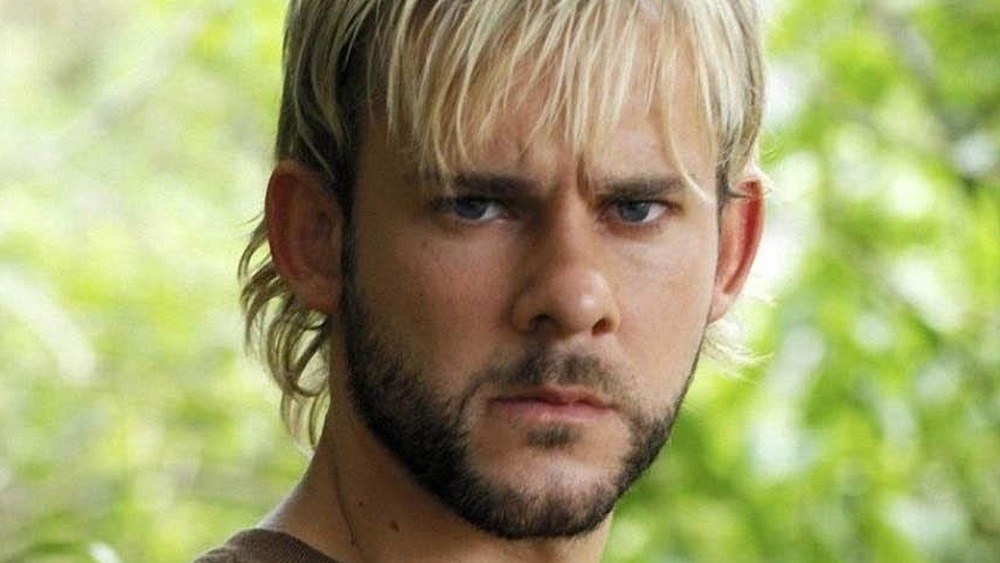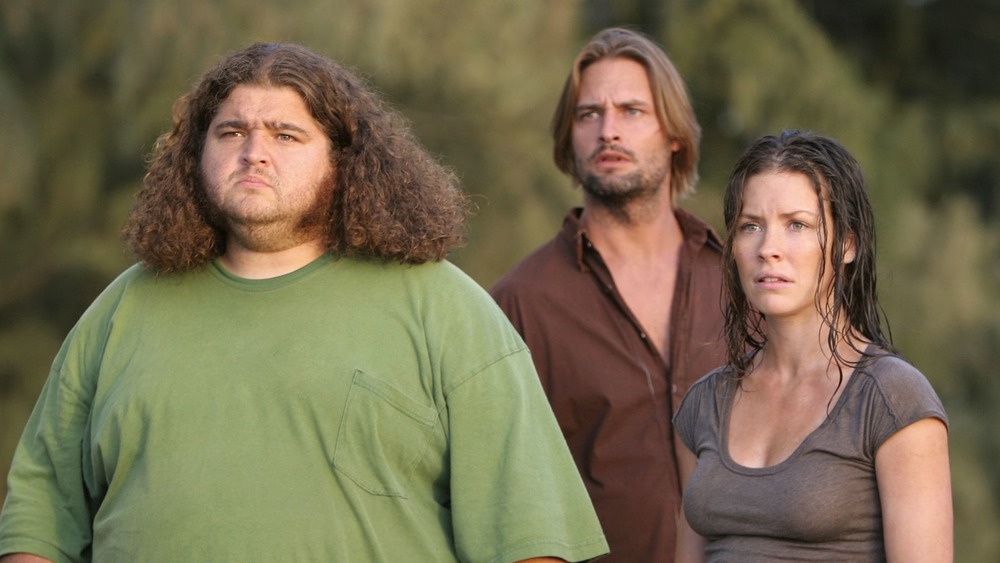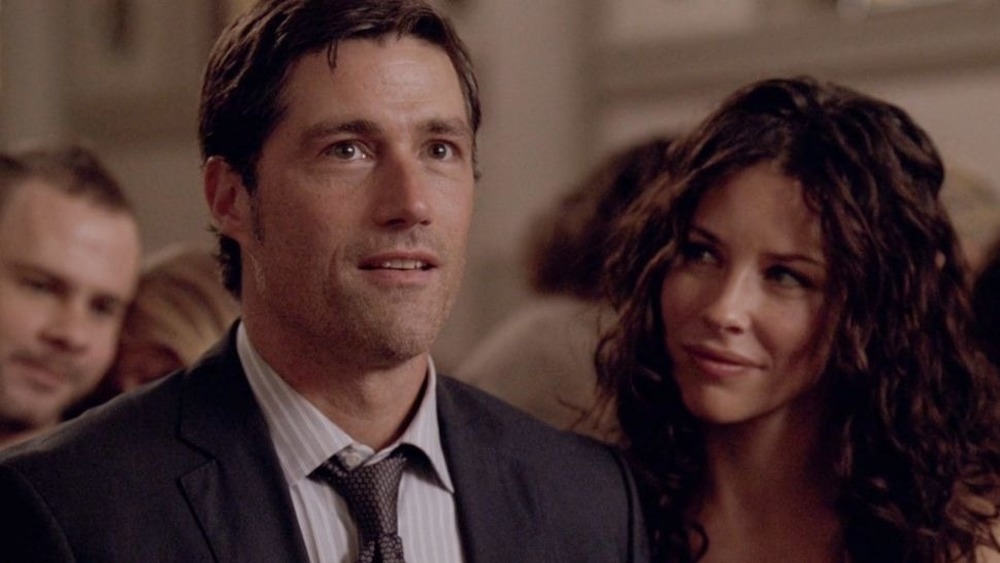The Lie That The Lost Writers Told To ABC Executives
In an era when TV was changing rapidly, Lost felt like it was constantly pushing the envelope. While Lost wasn't the first show that ever told a fully serialized story, its enormous mainstream success proved on a wide scale that a popular TV series didn't have to only tell stories that were contained within a single episode.
As it turns out, though, the serialization that was so crucial to Lost's story wasn't always part of the plan.
When the concept for Lost was picked up (which is a story unto itself), Damon Lindelof and J.J. Abrams were charged with writing the first episode and shepherding the series as it was developed into a full TV show. In part because of Alias, another Abrams show, executives at ABC had grown tired of serialized stories on TV, according to reporting in Uproxx. Due to their exhaustion with that form of storytelling, they demanded that each episode of Lost be entirely self-contained so that viewers wouldn't have to watch every episode in order to keep up with it.
Those who have watched Lost — and its now-iconic, deeply complex timeline – know that's not exactly what happened.
When creating Lost, Lindelof and Abrams broke some promises
When ABC executives told Lindelof and Abrams to make the series self-contained and episodic, the two creatives agreed to the request. They also promised that the show would have no specific genre, and would jump from being a medical show one week to be a police procedural the next.
Neither of these things were true, although elements of the genre-hopping would exist in the form of the flashbacks, which the show relied heavily on in its early seasons. Eventually, though, the show landed itself firmly in the realm of science fiction, which only made their additional promises to ABC executives even more ridiculous.
That wasn't all, though. As they were preparing to launch the series, Lindelof and Abrams promised the executives at ABC that everything that happened on the show would have a real, scientific explanation. They said that the show would hold no "ultimate mystery," and that all questions around the smoke monster would be solved within the first few episodes of the show. None of these promises were true, obviously — but they did help the show get to air in the first place.
Lost became such an enormous hit that these lies were overlooked
Eventually, the ABC executives would give Lindelof and Carlton Cuse, who stepped in as co-showrunner after Abrams left the show, more free reign than they had before the show premiered. When you have a hit like Lost on your hands, you trust the people who came up with it to know how to make sure it continues being a success. Contrary to all of ABC's demands, Lost was a show with an ultimate mystery, an extremely serialized narrative, subliminal messages hinting at future episodes, and one where many of the biggest questions around the island could not be explained with strict science.
Even though Lost's ending was divisive, the show was a massive success for ABC, and its legacy has lasted for more than a decade since the finale aired. Lindelof and Abrams may have made some false promises to get the show off the ground, but breaking those promises didn't stop it from becoming a massive hit with millions of fans.
Lost was a serialized science fiction show which became beloved for those very qualities, whether the ABC executives thought they would work or not. And besides, once it became a pop culture phenomenon, it seems that those same executives didn't have hurt feelings.


